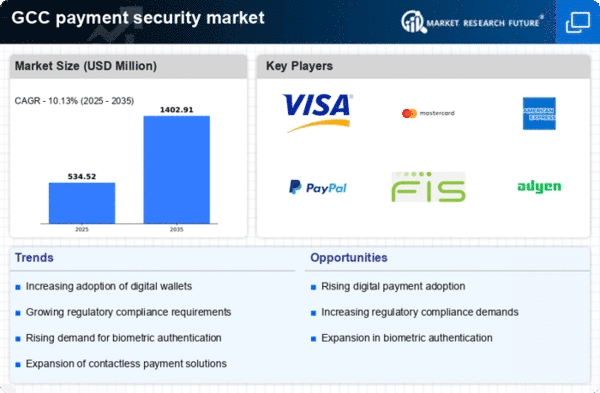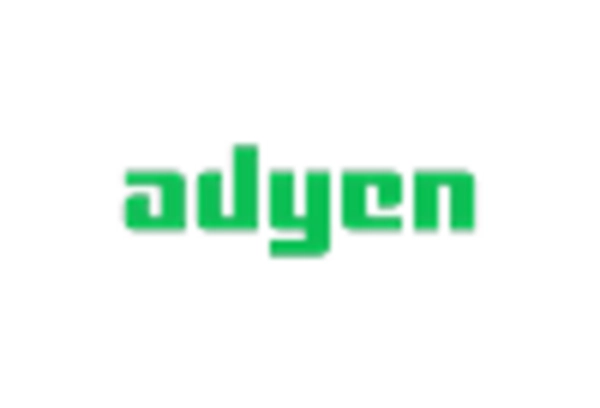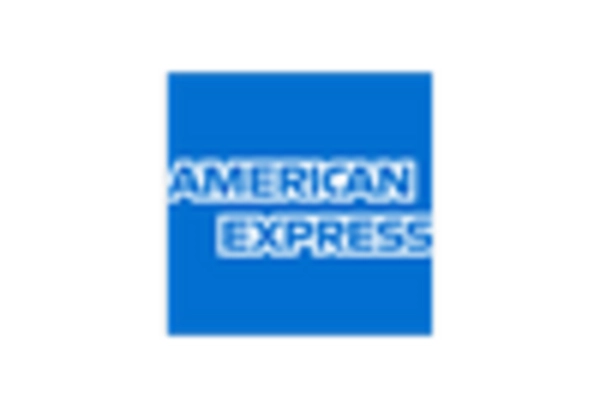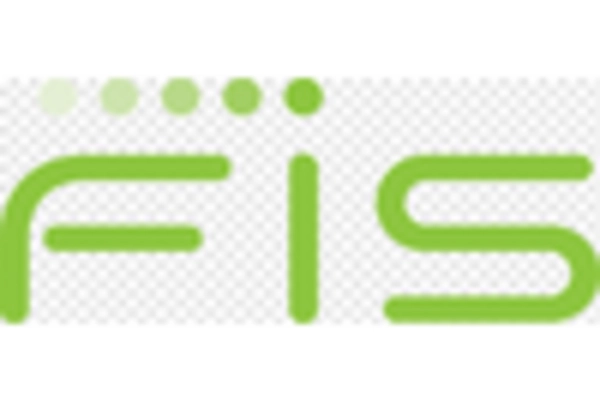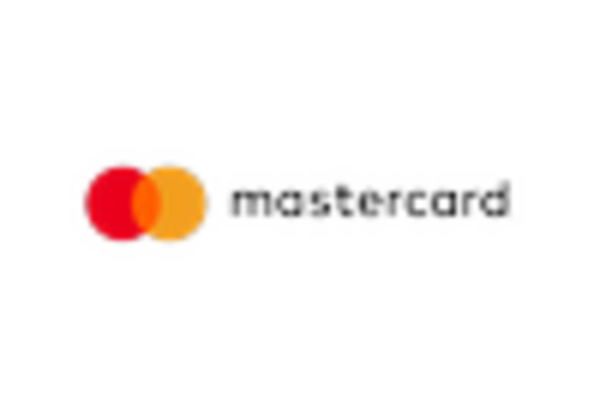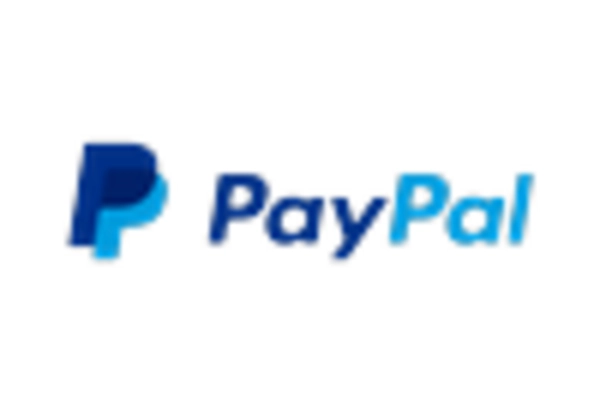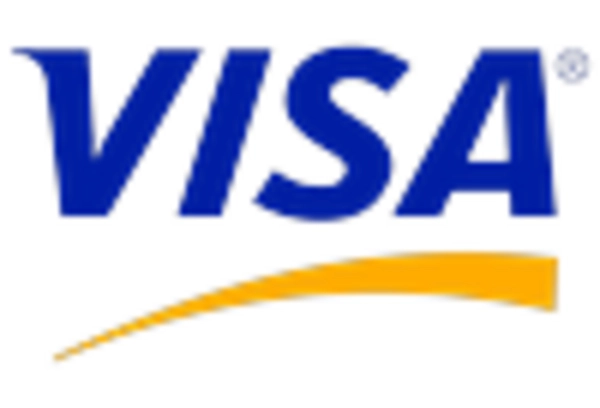Rising Cybersecurity Threats
The payment security market is experiencing heightened demand due to the increasing frequency and sophistication of cyber threats. In the GCC region, financial institutions and businesses are investing heavily in advanced security measures to protect sensitive customer data. Reports indicate that cybercrime costs businesses in the region approximately $1.5 billion annually, prompting a shift towards more robust payment security solutions. As organizations face potential financial losses and reputational damage, the urgency to adopt comprehensive security frameworks becomes paramount. This trend is likely to drive innovation and investment in the payment security market, as stakeholders seek to mitigate risks associated with data breaches and fraud.
Growth of E-commerce Transactions
The rapid expansion of e-commerce in the GCC significantly influences the payment security market. With online retail sales projected to reach $28 billion by 2026, the need for secure payment processing systems is more critical than ever. Consumers are increasingly concerned about the safety of their financial information during online transactions, leading businesses to prioritize payment security solutions. This growing demand for secure payment gateways and fraud detection systems is likely to propel the payment security market forward. As e-commerce continues to flourish, the integration of advanced security technologies will be essential to maintain consumer trust and ensure seamless transactions.
Increased Mobile Payment Adoption
The surge in mobile payment adoption across the GCC reshapes the payment security market landscape. With mobile wallet usage expected to grow by 30% annually, businesses are compelled to enhance their security measures to protect mobile transactions. Consumers are increasingly utilizing smartphones for payments, which raises concerns about data security and privacy. Consequently, payment security solutions that cater specifically to mobile platforms are gaining traction. This trend indicates a shift towards more sophisticated encryption methods and biometric authentication, as stakeholders aim to safeguard user data and enhance the overall security of mobile payment systems.
Emergence of Blockchain Technology
The advent of blockchain technology is poised to revolutionize the payment security market in the GCC. By providing a decentralized and transparent method for processing transactions, blockchain offers enhanced security features that can significantly reduce fraud and data breaches. Financial institutions are exploring blockchain solutions to streamline payment processes while ensuring the integrity of transactions. This technology's potential to improve security and efficiency is likely to attract investment and innovation within the payment security market. As more organizations recognize the benefits of blockchain, its adoption could reshape the future landscape of payment security in the region.
Regulatory Pressure for Enhanced Security
Regulatory bodies in the GCC are imposing stricter guidelines on payment security, compelling organizations to adopt more rigorous security measures. Compliance with regulations such as the Payment Card Industry Data Security Standard (PCI DSS) is becoming increasingly critical for businesses operating in the payment security market. Failure to comply can result in hefty fines and loss of customer trust. As a result, organizations are investing in comprehensive security solutions to meet these regulatory requirements. This trend is likely to drive growth in the payment security market, as businesses seek to align their practices with evolving regulatory standards and protect themselves from potential liabilities.


